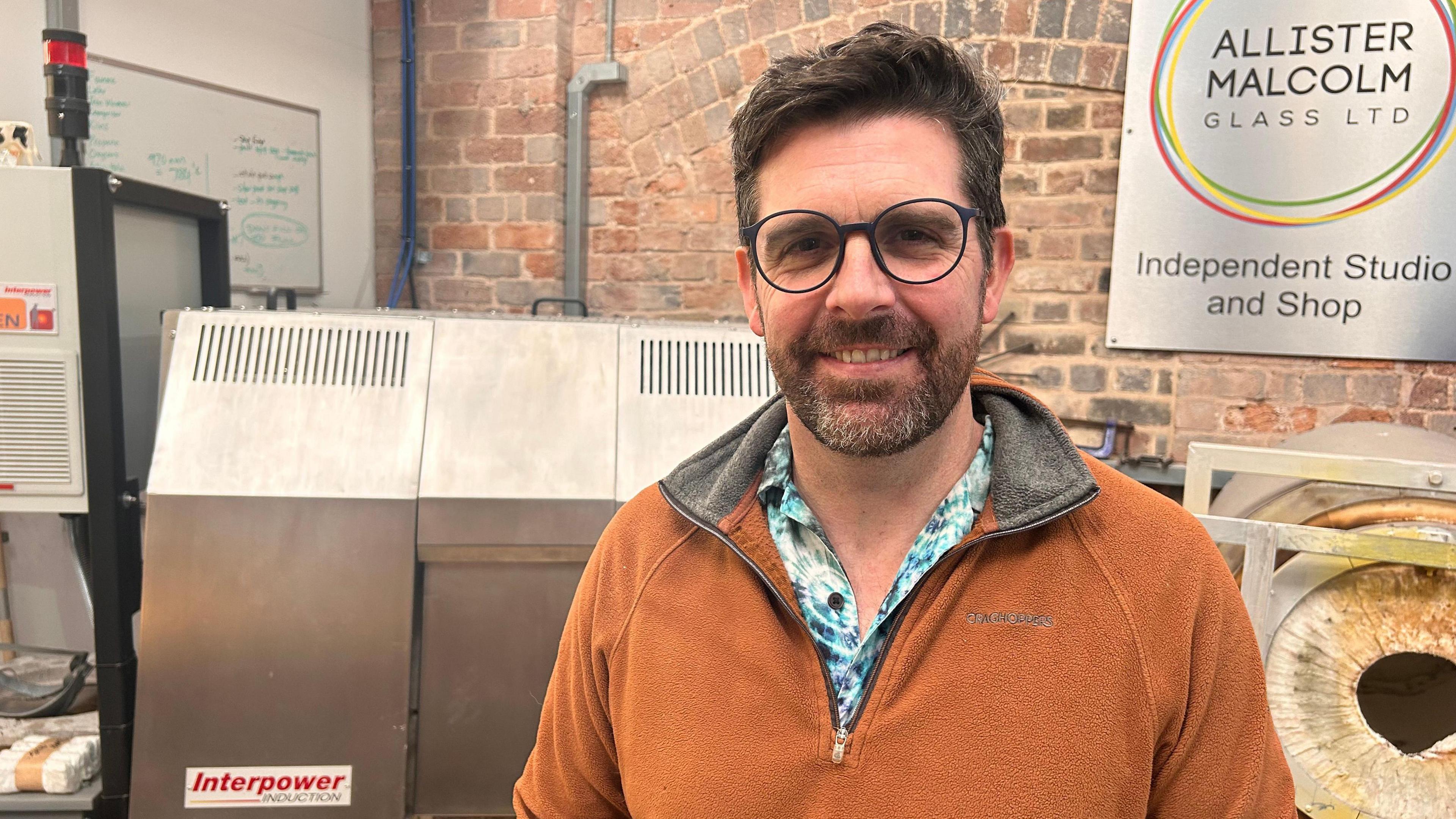Glass studio goes electric to reduce gas bills

Allister Malcolm says overhead costs at his studio increased from £12,000 a year to about £84,000
- Published
A glass-making studio has switched to using electric and renewable energy after seeing its annual gas bills increase by more than £70,000.
Glass artist Allister Malcolm said the energy crisis had a "big impact" on ongoing expenses at his studio at Stourbridge Glass Museum.
“Our overheads in the space of a short period of time tripled and then more than doubled again," he explained.
“So we went from over £12,000 a year in gas to around £84,000 a year in gas."
Mr Malcolm said the small family-run business had looked into solutions to ensure glass-making could remain a career option for others in the future.
The first thing the studio looked at doing was changing the gas-fired cooling ovens to electric which was a “fairly straight-forward process,” he explained.
Stourbridge Glass Museum tells the story of 400 years of glass-making in the region
“We changed to an electric furnace almost 12 months ago,” he said.
“It dropped our running costs down almost immediately, the savings in our carbon footprint are fairly substantial.”
The Stourbridge Glass Museum tells the story of 400 years of glass-making in the West Midlands.
Dudley Council previously said glass-making in the area had dated back to the 17th Century.
Mr Malcolm added that the next stage was for the studio to switch to an energy provider which supplied “100% renewable energy.”
“We’ve ditched fossil fuels, we’ve moved to electricity and now we’re moving to renewables,” he said.
Follow BBC West Midlands on Facebook, external, X,, external and Instagram, external, Send your story ideas to: newsonline.westmidlands@bbc.co.uk, external
Related topics
- Published9 April 2022